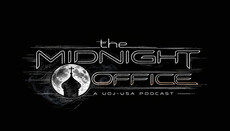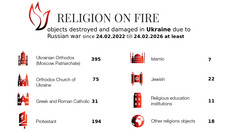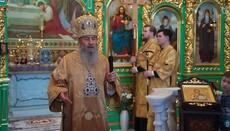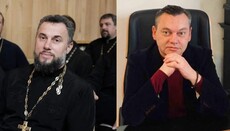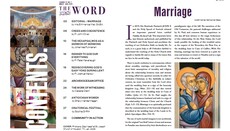UOC Chancellor: No EP Exarchate in Ukraine

Metropolitan Anthony of Boryspil, Chancellor of the canonical Ukrainian Orthodox Church, warned on November 17 that joining a proposed “temporary exarchate” under Constantinople would be gravely mistaken or deliberately deceptive, as such a structure lacks canonical ordination, Apostolic Succession, and the grace of the Holy Spirit.
KYIV — On November 17, Metropolitan Anthony of Boryspil and Brovary, Chancellor of the canonical Ukrainian Orthodox Church, warned believers against proposals to join a “temporary exarchate” under Constantinople as an alternative to uniting with the schismatic Orthodox Church of Ukraine.
He stressed that the core issue is not politics, language, or jurisdiction, but canonical validity and the presence of Apostolic Succession and the Holy Spirit, both of which he says any Constantinople-linked structure in Ukraine lacks.
The Metropolitan cautioned that those promoting such an exarchate, even temporarily, are either gravely mistaken or deliberately leading the faithful into temptation and schism.
Read the Chancellor’s full statement:
Right now there’s a great deal of talk about how to organize the Ukrainian Orthodox Church under conditions of unrelenting pressure.
Numerous speakers and “experts” broadcast various ideas through social media and conferences. How can we make sense of this flow of information? How can we understand whether a person promoting this or that version of Church development is for the Church or pursuing entirely different interests?
For example, nowadays among believers of the Ukrainian Orthodox Church people are again promoting the idea of entering some kind of “exarchate” or even “temporary exarchate” of the Patriarchate of Constantinople as an alternative to unification with the OCU.
To grasp the essence of what people are talking and writing about today, we must first filter out everything superfluous. After all, everywhere people reason too much about things that, of course, have significance but aren’t primary.
This concerns politics, culture, language, civilizational choice, jurisdictions, and so on. Undoubtedly, all of this is important. But the essence lies elsewhere.
Once again it’s important to emphasize: we can’t accept any structure calling itself “ecclesiastical” if this structure lacks canonically legitimate ordinations of clergy, and therefore lacks Apostolic Succession and the Holy Spirit.
The fact that the Patriarchate of Constantinople takes such structures under its omophorion doesn’t testify to granting them canonical status. And this is the most important thing.
Therefore, if someone, wishing to “save” the Church, starts talking about an “exarchate” of the Patriarchate of Constantinople for our believers, whether temporary or of any kind, this is the main sign that this person is at best mistaken, and at worst is consciously trying to lead people into temptation.
The Hieromartyr Ignatius the God-bearer in his Epistle to the Philadelphians calls out: “Do not be deceived, my brothers! He who follows one who creates schism will not inherit the Kingdom of God.”
Church people will not accept such “unification,” just as they did not accept the Unia or Renovationism in their time.
We must understand once and for all: The Church cannot be saved by departing from truth. In general, the very idea that sinful people can save the Church—the Body of Christ—is absurd, because it’s not we who save the Church, but the Church that saves us.
Our path is to continue standing in truth, to love God and neighbor, to fulfill the commandments and repent of sins, and not to seek paths of “saving” the Church at the price of betrayal.
This translation first appeared at Orthodox Christianity.
